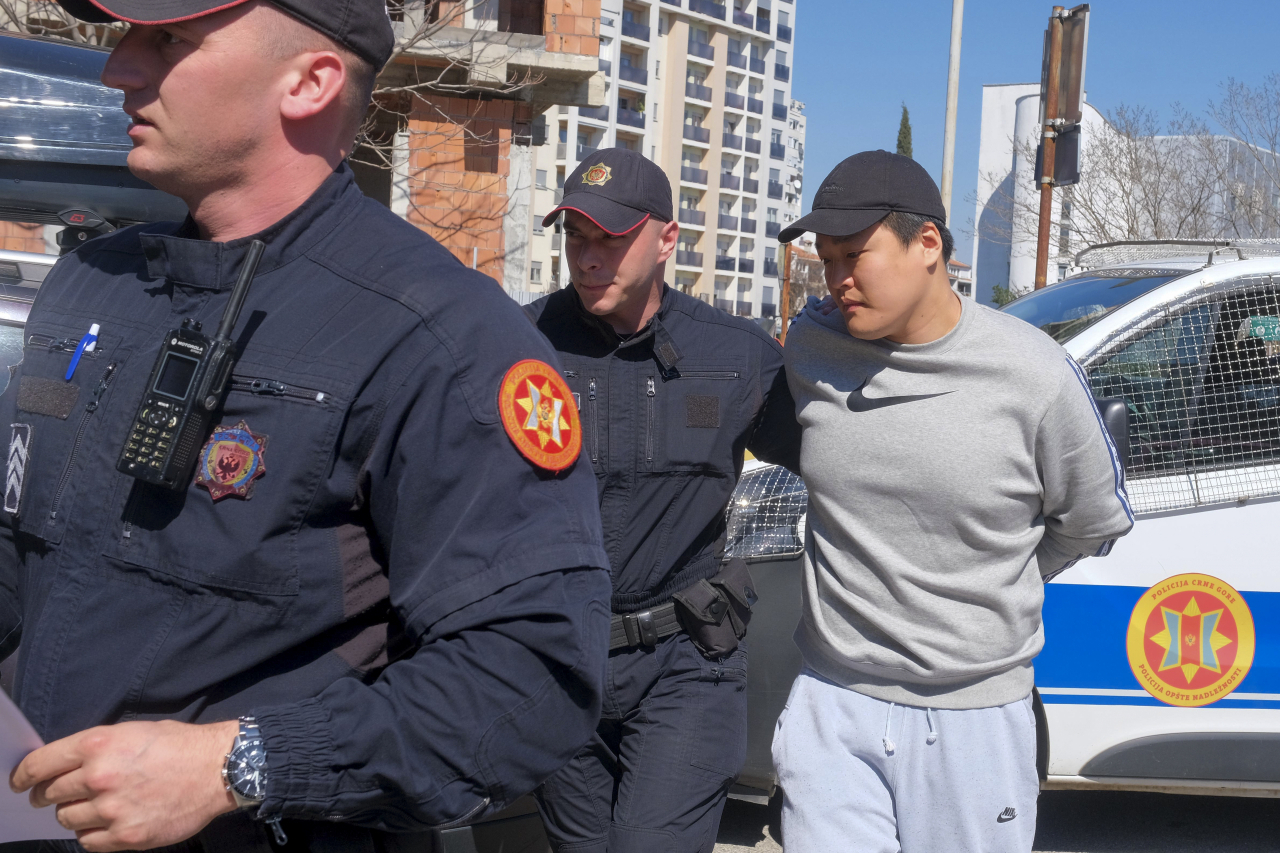
PODGORICA -- Prosecutors in Montenegro on Friday charged fugitive cryptocurrency entrepreneur Do Kwon with forgery and South Korean officials vowed to press for his extradition.
The Terraform founder is accused of fraud over his company’s dramatic collapse last year, which wiped out about $40 billion of investors’ money and shook global crypto markets.
Kwon, whose full name is Kwon Do-hyung, was arrested with a companion on Thursday at the airport in the Montenegrin capital Podgorica after being found travelling with fake travel documents.
“A criminal complaint was filed against both persons for the criminal offence of document forgery,” Montenegro’s police said on Friday.
A Podgorica court said it had remanded both Kwon and his companion in custody for up to 30 days over suspected document forgery “due to flight risk.”
Kwon now faces two cases in Montenegro -- the first involving his alleged possession of forged documents and the second regarding his possible extradition.
Kwon’s lawyer, Branko Andjelic, told AFP on Friday that his client denied possessing any false documents.
A court official said Kwon would appear in the Higher Court in Podgorica for his extradition hearing only after the lower court had made a decision in relation to the forgery charges.
Montenegro’s interior ministry said Kwon had been arrested on a South Korean warrant. Officials in Seoul vowing on Friday to seek formal extradition.
Not so stable
“South Korean prosecutors will take steps to repatriate Kwon Do-hyung. We are working on the process,” Kim Hee-kyung, a spokeswoman for the Seoul Southern District Prosecutors’ Office, told AFP.
South Korea is a member of the European Convention on Extradition -- a multilateral convention that facilitates extradition between member nations -- and Montenegro is also a signatory.
Following his arrest, the United States also charged Kwon with eight counts for allegedly “orchestrating a multi-billion-dollar crypto asset securities fraud,” the US Securities and Exchange Commission (SEC) said.
Kwon reportedly flew from South Korea to Singapore before his company crashed in May last year.
In September, South Korean prosecutors asked Interpol to place him on the red notice list across the agency’s 195 member nations, and revoked his passport.
Kwon’s TerraUSD was marketed as a “stablecoin,” which is typically pegged to stable assets such as the US dollar to prevent drastic fluctuations in prices.
But TerraUSD was an “algorithmic stablecoin” -- not backed by assets but instead pegged only to its floating sister currency, Luna. The two currencies went into freefall in May last year.
Questions about Kwon’s whereabouts intensified after the Singapore Police Force said he was not in the country.
‘Too much damage’
Montenegrin authorities said on Thursday that Kwon and a companion had used “falsified travel documents from Costa Rica” during passport control for a flight to Dubai.
Inspection of their luggage also revealed travel documents from Belgium and South Korea, and Interpol checks showed the Belgian documents were forged, Montenegro’s interior ministry added.
Cryptocurrencies have come under increasing scrutiny from regulators after a string of recent controversies, including the high-profile collapse of the exchange FTX.
The digital currency sector has also been hit hard by the demise of US crypto lenders Silvergate and Signature amid a string of banking failures that have rattled global markets.
“It is true that Kwon has done too much damage to too many people, with something that carried a lot of unexplained risks,” Cho Dong-keun, an economics professor emeritus at Myongji University, told AFP.
Kwon and Terraform Labs also moved more than 10,000 bitcoin out of their failed project and converted some of the tokens into cash via a Swiss bank, Bloomberg News reported, citing the SEC.
“Kwon certainly needs to be held accountable for his actions,” Kim Dae-jong, a professor of business administration at Sejong University, told AFP.
“The bottom line is that Kwon didn’t run the company according to laws and principles. He exploited it for his own personal financial gain.” (AFP)
-
Articles by AFP



















![[Today’s K-pop] Treasure to publish magazine for debut anniversary](http://res.heraldm.com/phpwas/restmb_idxmake.php?idx=642&simg=/content/image/2024/07/26/20240726050551_0.jpg&u=)